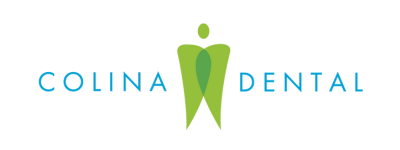An international view on dental education and dental careers
Many aspects in dentistry have changed in the last decade. Technological innovations like CAD-CAM Systems, CBCT (Cone Beam Computed Tomography) and digital imaging are now a reality in many dental practices around the world.
Dental education is also witnessing positive changes owing to an increase in new technological tools that have become recently available to the profession. The internet, for example, allows us to take continuing dental education, webinars and even obtain CE Credits without having to leave our offices. We can study, discuss and even outline treatment plan cases using a variety of user-friendly software options through mobile devices like tablets or smart phones from the comfort of our homes.
This technological revolution in dental training has also benefits for the patients. Nowadays, patients are able to conduct extensive research online and access lots of information in regard to dental treatments and protocols. Online research and education allows patients to feel more comfortable with their decision by alleviating fears that stems from doubt and misunderstanding.
With better education, patients are not only able to seek the best possible treatment; they also challenge us to be better informed professionals. Globalization has opened the doors of many dental practices to the entire world. Clinicians can now attract patients from different countries and cultures through strong internet marketing. This concept of dental tourism has encourages dental professionals to become more efficient with their time they use for providing quality service to patients. With the help of today’s dental technology, high quality dental care can be provided with great time savings, allowing patients to travel for quality dental care at measurable savings when compared to dental care in their home countries.
With the continued development of new dental materials and stronger bonding systems we can practice minimally invasive dentistry, maintaining as much healthy tooth structure as possible. With this approach we can save more dentine and enamel, natural materials that will always outperform manmade dental materials. The present and future in dentistry must be focused on prevention and patient education, reducing the needs for unnecessary treatments while providing patients with the highest level of personal care.
We must not forget the ethical responsibilities that we, as health care providers must respect in our care for each patient. We must always take our time to develop a correct medical history, as well as clinical and radiographic evaluations. The most important part of our work however is listening. We must take the time to listen to our patients and to hear what they are saying…and often what they are not saying. They have come to us for answers, but we must first listen intently to properly formulate our solutions. We also need to take our time to propose the best possible treatment plan which in many cases may require an interdisciplinary approach, seeking the advice of other trusted colleagues. This collaborative approach will help us avoid performing unnecessary procedures, and guide us in the correct way of treatment.
As dental professionals, we are fortunate to live in this age of advanced technology and communication. Remember not to allow your daily obligations at your practice to distance you from your patients, from your family and from your other passions in life. Always take some time off to practice your favorite sport or hobby. Make sure you protect yourself properly while working, caring for your eyes and joints, and promote a positive working environment for your team with a commitment to teamwork.
Embrace technology. Take advantage of continuing enrichment and education. And take time to care for each other and for yourselves. Remember that happiness and fulfillment in our dental careers is not only the destination, but also the journey.
Dr Julián Conejo Gutiérrez is currently professor at Universidad Latina de Costa Rica in Rincón de Sabanilla in Costa Rica and visiting professor at the Universidad Intercontinental Mexico in Mexico City. He also maintains a private practice specialized in prosthodontics and implantology with CAD/CAM technology, in particular. He is the director of Perlas de Porcelana Dental Laboratory in San Jose, and is the founder of www.jceducaciondental.com, website dedicated to online dental education. Julian was awarded the Young Clinician Award at the Nobel Biocare World Tour, in Mexico City, 2008, and serves as a consultant to several international dental corporations. This Friday morning, he will be lecturing on aesthetic restoration with new ceramic materials as part of the ADX14 continuing professional development program.



